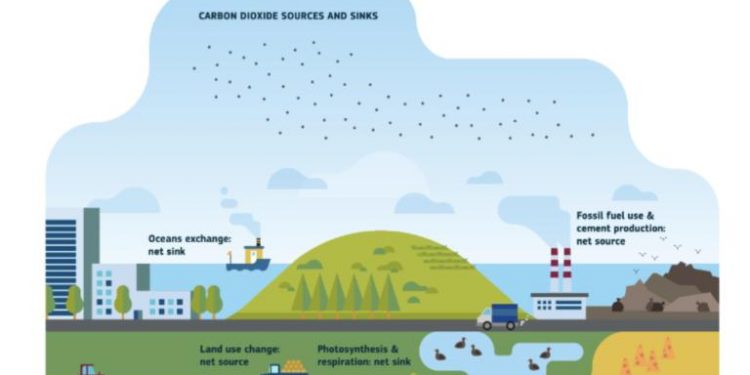The World Meteorological Organization (WMO) has released the draft implementation plan for the Global Greenhouse Gas Watch (G3W), seeking expert consultation to shape a key initiative aimed at bolstering climate action. This comprehensive plan sets the stage for a coordinated global effort to monitor greenhouse gases, providing the critical data needed to inform and drive mitigation strategies under the Paris Agreement.
G3W aims to enhance the monitoring of carbon dioxide, methane, and nitrous oxide—key greenhouse gases contributing significantly to climate change. By integrating space-based and surface-based observing systems, along with advanced modeling and data assimilation capabilities, G3W will deliver a robust scientific framework to support global climate policies.
“The year 2023 was the warmest on record, marked by extreme weather events fueled by climate change. Addressing this crisis requires reliable data on greenhouse gases—the primary drivers of global warming,” stated Dr. Gianpaolo Balsamo, Director of Global Greenhouse Gas Watch. G3W will leverage WMO’s extensive experience in international collaboration on weather prediction and climate analysis, ensuring a seamless integration of existing greenhouse gas monitoring activities.
The initiative’s phased approach covers the 2024-2027 financial period, with a vision extending to 2050. The initial phase will focus on developing the operational framework, while subsequent phases will enhance and expand the monitoring capabilities. This long-term vision underscores the commitment to providing continuous and reliable data to combat climate change.
WMO’s Global Greenhouse Gas Watch received preliminary approval from the World Meteorological Congress in 2023, with initial funding from Germany and Denmark. The initiative has garnered interest from banks and the private sector, signaling a broad-based support for this critical endeavor.
Presented at the UN Climate Change Conference (COP28) in Dubai, G3W gained significant attention, highlighted during Earth Information Day and mentioned in the closing SBSTA-59 document. The review of the draft implementation plan remains open until January 31, 2024, with the finalized version slated for presentation to WMO’s Infrastructure Commission in April and the Executive Council in June.











